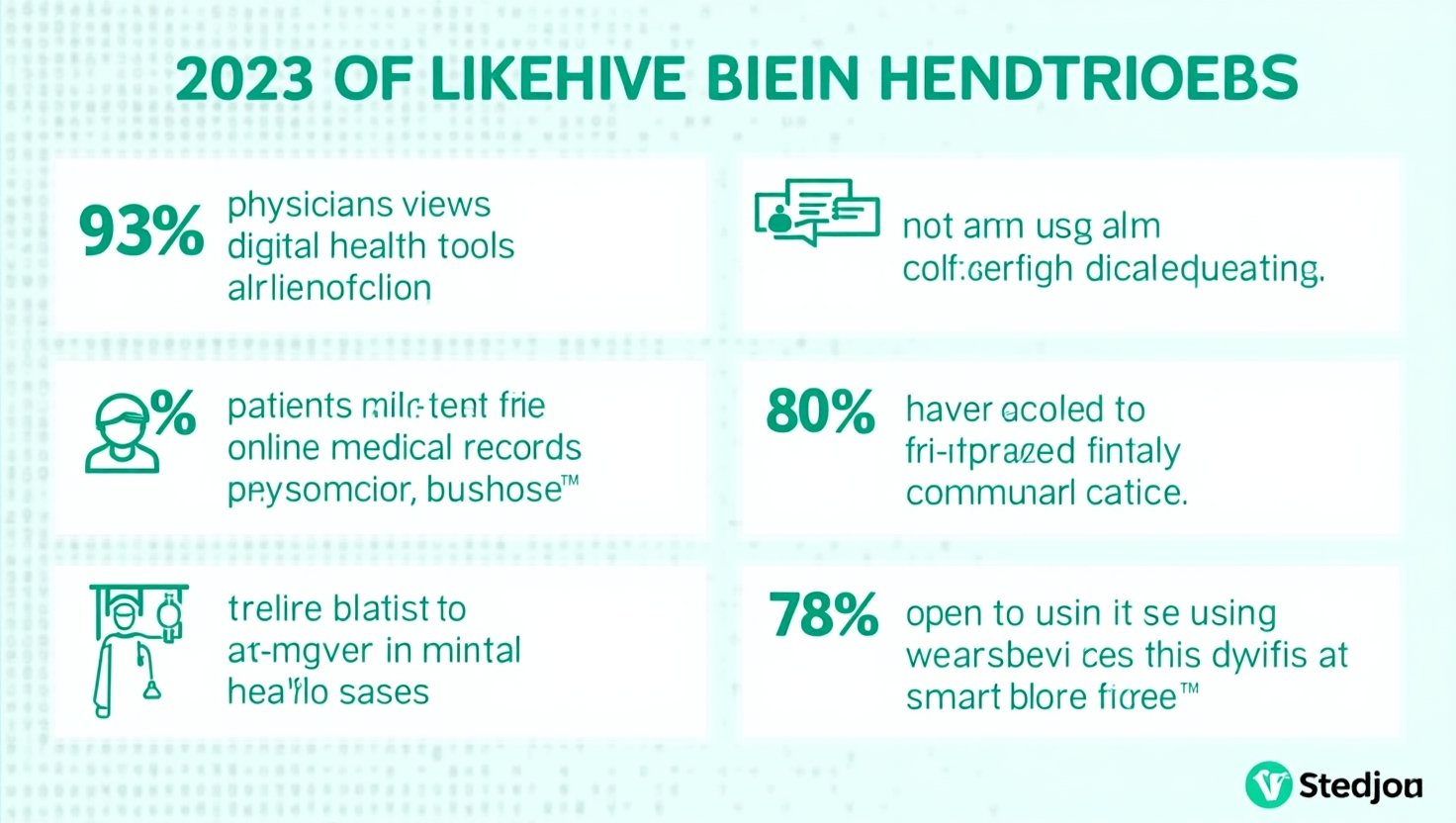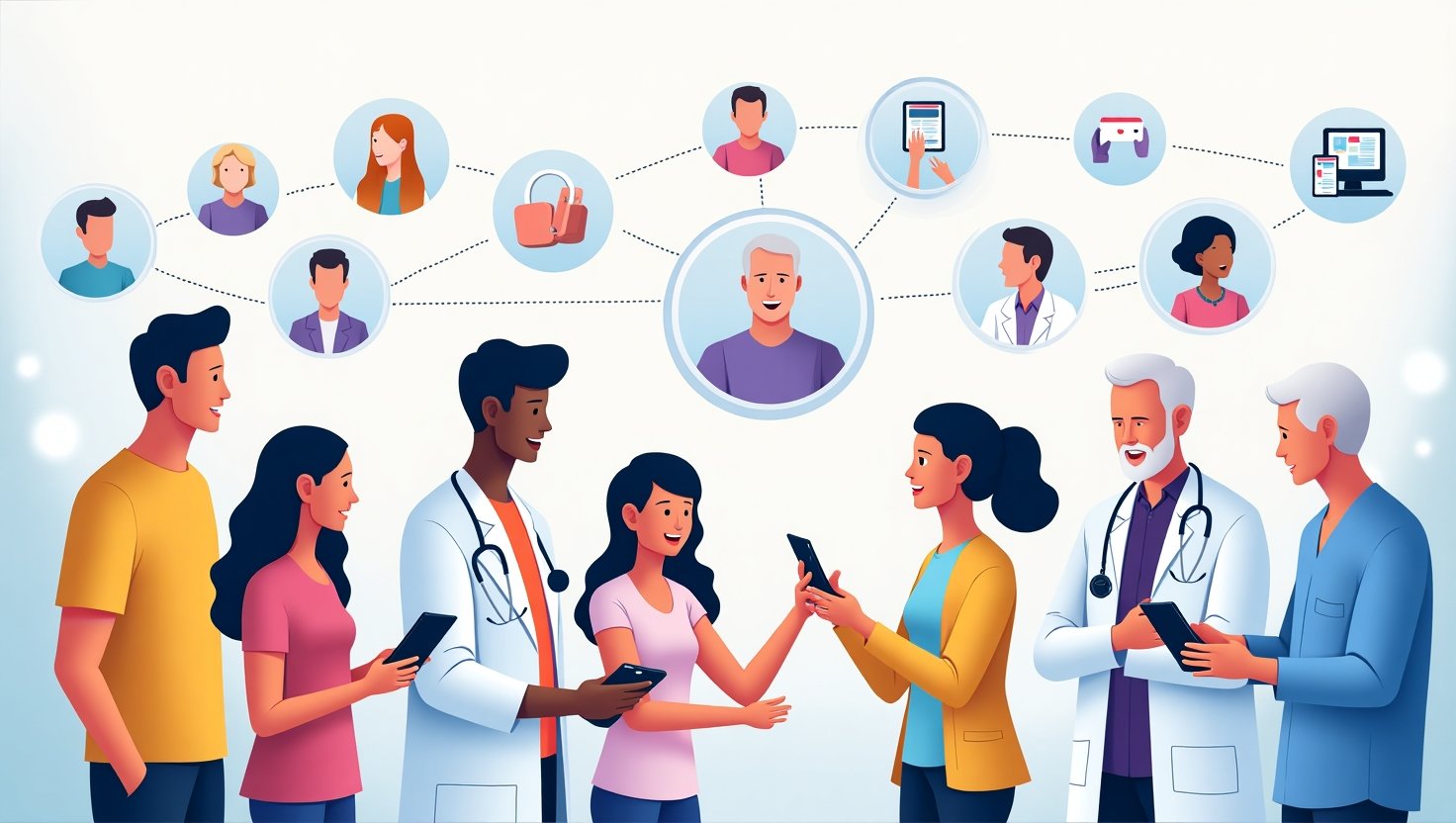In an era where technology continues to reshape every facet of our everyday lives, the collaboration between big tech companies and government entities is redefining the landscape of healthcare. As over sixty major players, including giants like Google, Amazon, and Apple, align efforts with public institutions, a new digital health ecosystem supported by AI in healthcare solutions is poised to emerge.
This collaborative endeavor promises to leverage cutting-edge technology to streamline healthcare delivery, enhance patient-provider information sharing, and create personalized health tools that are more accessible and efficient than ever before. With results on the horizon set for early 2026, the potential benefits of this synergy could revolutionize how we manage our health, making care more proactive, informed, and tailored to individual needs.
As we explore this exciting intersection of technology and public health, the possibilities seem boundless, setting a forward-looking tone for the future of healthcare delivery and the critical role of AI solutions.
Key Players Involved in the Digital Health Ecosystem
Major tech companies play a crucial role in the development and sustainability of the digital health ecosystem. Here are some key players and their contributions:
-
Google
Google enhances patient information sharing through its search algorithms and cloud services. These tools help organize healthcare data effectively. Additionally, Google’s AI capabilities are used for symptom checking, patient triage, and integration with health wearables, providing real-time health insights.
-
OpenAI
OpenAI develops conversational AI models that improve patient interactions. Its technology is integrated into various health management applications, helping patients understand their conditions and manage their health through personalized recommendations and reminders.
-
Amazon
Amazon uses its e-commerce platform to ease the delivery of healthcare products, including prescriptions and health monitoring devices. Moreover, AWS (Amazon Web Services) provides scalable cloud infrastructure for healthcare applications, ensuring data security and compliance with regulations.
-
Anthropic
Anthropic is dedicated to responsible AI development. It offers tools that help healthcare innovators include AI in their solutions safely. Their work is essential for ensuring that AI technologies prioritize patient safety and ethical decision-making.
-
Apple
Apple has made progress in health by adding health-tracking features to devices like the Apple Watch. With applications focused on managing diabetes and obesity, Apple gives users tools to monitor vital signs and health metrics, enhancing personal health management.
The combined efforts of these tech giants create a strong framework for future healthcare innovations, emphasizing personalized care, accessibility, and improved communication between patients and providers. As they work with government entities, the future of digital health appears promising, with the potential to change how healthcare is delivered and experienced around the world.
| Tech Company | Contributions | Tools/Technologies |
|---|---|---|
| Enhances patient information sharing | AI algorithms, cloud services, health wearables | |
| OpenAI | Develops conversational AI for patient engagement | Personalized health apps |
| Amazon | Streamlines delivery of healthcare products | E-commerce, AWS for healthcare applications |
| Anthropic | Focuses on responsible AI for healthcare | Ethical AI tools |
| Apple | Integrates health tracking in devices | Diabetes and obesity management apps |
Insights on the Digital Health Framework
The new digital health framework is designed to enhance patient-provider information sharing and facilitate the development of personalized health management tools. Key components leverage advanced technologies such as AI, cloud services, and secure data systems, allowing seamless communication between healthcare providers and patients. By analyzing vast amounts of health data, the framework aims to tailor health resources and tools to individual patient needs.
Companies like Google and Apple exemplify real-world applications within this framework. Google uses AI algorithms to analyze health data, enabling timely access to patient history. Apple’s health monitoring apps help users manage diabetes and obesity through personalized interventions based on their health data.
Moreover, OpenAI’s evolving AI models facilitate conversational interactions, empowering patients in managing their health by promoting health literacy and informed decision-making. The framework represents a significant advancement in healthcare delivery, promoting transparency, accessibility, and personalized care.
To emphasize the goals of this collaboration, one industry leader stated,
“The efforts will focus on creating a framework for patients and providers to easily share information, and more personal tools so patients can access resources needed to stay informed about their health.”

User Adoption Trends in Digital Health Tools
The adoption of digital health tools and applications has surged in recent years, significantly improving patient-provider communication and health management. Key statistics and trends include:
- Physician Adoption: The percentage of physicians who view digital health tools as beneficial for patient care rose from 85% in 2016 to 93% in 2022 (American Medical Association). This increase indicates a growing acceptance among healthcare providers regarding the importance of technology in enhancing patient care.
- Telehealth Utilization: The use of telehealth services among U.S. adults grew remarkably, from 11% in 2019 to an impressive 46% in 2021 (Wikipedia). Approximately 80% of healthcare providers in the U.S. reported utilizing telemedicine services in 2022 (ZipDo).
- Remote Patient Monitoring (RPM): By 2024, it is anticipated that RPM services will reach 30 million U.S. patients (Market.us). Notably, 80% of Americans support the integration of RPM into medical services, with many expressing strong preferences for its use (Market.us).
- Patient Engagement Preferences: A substantial 44% of patients prefer communicating with their healthcare providers through mobile apps (WorldMetrics). Additionally, 72% of patients want easy online access to their medical records, enhancing their ability to manage their health actively. Approximately 70% reported higher satisfaction with their care when they could access health information online (Gitnux).
- Market Growth: The global digital health market is set to reach $379.4 billion by 2025 (WorldMetrics). The telehealth market specifically is projected to grow at a compound annual growth rate (CAGR) of 25.2% from 2021 to 2028, reflecting increasing reliance on digital health solutions (WorldMetrics).
These trends highlight a robust integration of digital health tools, resulting in improved communication between patients and providers, enhanced health management, and increased patient satisfaction. As patients adopt these technologies, their interactions with healthcare services become increasingly proactive and informed, paving the way for a more engaged health ecosystem.

Conclusion
As we stand on the brink of a transformative era in healthcare facilitated by the collaboration between big tech companies and government entities, the implications of this partnership are vast and promising. The establishment of a digital health ecosystem not only seeks to streamline patient-provider information sharing but also aims to make healthcare more personalized, accessible, and efficient.
However, this innovative venture is not without its challenges. Data privacy and security remain paramount concerns, especially as sensitive health information is increasingly stored and shared digitally. To enhance understanding of this, you can read about the integration of AI and Blockchain for Enhanced Security, which is aimed at safeguarding health data through innovative technologies. Addressing these concerns will require rigorous compliance with regulations and ongoing dialogue between stakeholders to establish robust security protocols. Additionally, ensuring equitable access to these technologies across diverse populations is essential as outlined in a report on the Digital divide affecting patient portal use in primary care. By implementing outreach programs and community health initiatives, we can foster an inclusive health ecosystem where every individual benefits from technological advancements.
Looking ahead, the potential to enhance patient engagement and overall healthcare outcomes is profound. The advancements in patient engagement tools, such as Apple’s Health app and Amazon’s telehealth services (Health Disruptions and Innovations by Big Tech), are paving the way for patients to take control of their health journeys. As AI models evolve and health management tools become more sophisticated, they will empower patients to take responsibility for their health. This collaboration heralds a new chapter where technology and healthcare synchronize in a manner that not only responds to current needs but anticipates future ones. Together, we can navigate the complexities ahead and harness the power of technology to revolutionize the health landscape for generations to come.
Conclusion
As we stand on the brink of a transformative era in healthcare facilitated by the collaboration between big tech companies and government entities, the implications of this partnership are vast and promising. The establishment of a digital health ecosystem not only seeks to streamline patient-provider information sharing but also aims to make healthcare more personalized, accessible, and efficient.
However, this innovative venture is not without its challenges. Data privacy and security remain paramount concerns, especially as sensitive health information is increasingly stored and shared digitally. To enhance understanding of this, you can read about the integration of AI and Blockchain for Enhanced Security, which is aimed at safeguarding health data through innovative technologies. Addressing these concerns will require rigorous compliance with regulations and ongoing dialogue between stakeholders to establish robust security protocols. Additionally, ensuring equitable access to these technologies across diverse populations is essential as outlined in a report on the Digital divide affecting patient portal use in primary care. By implementing outreach programs and community health initiatives, we can foster an inclusive health ecosystem where every individual benefits from technological advancements.
Looking ahead, the potential to enhance patient engagement and overall healthcare outcomes is profound. The advancements in patient engagement tools, such as Apple’s Health app and Amazon’s telehealth services (Health Disruptions and Innovations by Big Tech), are paving the way for patients to take control of their health journeys. As AI models evolve and health management tools become more sophisticated, they will empower patients to take responsibility for their health. This collaboration heralds a new chapter where technology and healthcare synchronize in a manner that not only responds to current needs but anticipates future ones. Together, we can navigate the complexities ahead and harness the power of technology to revolutionize the health landscape for generations to come.
Challenges in the Digital Health Ecosystem
While the collaboration between big tech and government can lead to substantial advancements in the digital health landscape, several challenges and concerns warrant thorough consideration.
Data Privacy
One of the most significant challenges is data privacy. As more personal health data gets stored and managed digitally, the risk of data breaches escalates. Patients may feel hesitant to share sensitive information due to concerns regarding who can access their data and how it will be used. Previous scandals involving data leaks in other industries serve as a cautionary tale for stakeholders in healthcare. Striking a balance between leveraging data for improving patient outcomes and ensuring robust data privacy will be crucial in establishing trust in the digital health ecosystem.
Regulatory Hurdles
Regulatory hurdles also present substantial challenges, as the digital health landscape is constantly evolving. The integration of technology in healthcare must align with existing regulations designed to protect patient rights and ensure data security. Regulatory bodies need to keep pace with rapid technological advancements while creating a framework that fosters innovation. This can lead to complications and delays, hindering effective implementation and scaling of digital health solutions. Navigating the compliance landscape will require collaboration among tech companies, healthcare providers, and regulators to ensure that both innovation and safety are prioritized.
Public Trust
Finally, public trust remains a critical concern. Building a digital health ecosystem demands transparency, accountability, and a commitment to ethical practices. Patients want to ensure that their data is being handled responsibly and that technology does not overshadow the human element of healthcare. Without adequate efforts to foster trust, public hesitation about engaging with digital health tools may impede the widespread adoption necessary for these advancements to yield meaningful health outcomes.
Overall, addressing these challenges requires a cooperative effort among stakeholders to create a resilient and trustworthy digital health ecosystem that prioritizes patient welfare while leveraging innovations in technology.
Additional Resources on Digital Health Ecosystems
-
University Hospital of Marche
A publicly owned healthcare institution that partnered with private actor Loccioni to advance digital transformation in healthcare. -
Loccioni
A private company that collaborated with the University Hospital of Marche to implement innovative technologies in healthcare. -
Centers for Medicare and Medicaid Services (CMS)
A federal agency overseeing the new health tracking system initiative in collaboration with major tech companies. -
Google
A major tech company involved in the development of a new health tracking system with the U.S. government. -
Amazon
A major tech company participating in the U.S. government’s new health tracking system initiative. -
Apple
A major tech company collaborating with the U.S. government on a new health tracking system.
Academic Studies and Reports
-
Digital Health Care Industry Ecosystem: Network Analysis
Journal of Medical Internet Research. Analyzed the digital healthcare ecosystem in South Korea, emphasizing the need for a digital healthcare fee model. -
Digital Information Ecosystems in Modern Care Coordination and Patient Care Pathways
PubMed, December 2024. Explores challenges and opportunities for AI solutions within patient care pathways. -
The Power of Digital Health Care Ecosystems
Deloitte US, 2023. Discussed the emergence of digital health ecosystems and their transformative potential in healthcare delivery. -
Digital Health at a Glance
OECD, 2023. Highlights how digital health can improve healthcare delivery and patient outcomes. -
Digital Health Transformation through Private Sector Engagement
Center for Global Digital Health Innovation, 2023. Explores collaborative models to enhance healthcare access and outcomes during the COVID-19 pandemic.
| Regulatory Requirement | Description | Key Entities Involved |
|---|---|---|
| HIPAA Compliance | Ensures the privacy and security of health information. | HHS, healthcare providers |
| FDA Regulations | Governs the safety and efficacy of health platforms. | FDA, tech companies |
| FTC Guidelines | Protects consumers by preventing deceptive advertising. | FTC, digital health startups |
| GDPR (for EU engagement) | Protects personal data for individuals within the EU. | EU regulatory bodies |
| Telehealth Laws | Establishes the legal framework for telehealth services. | State regulatory boards |

